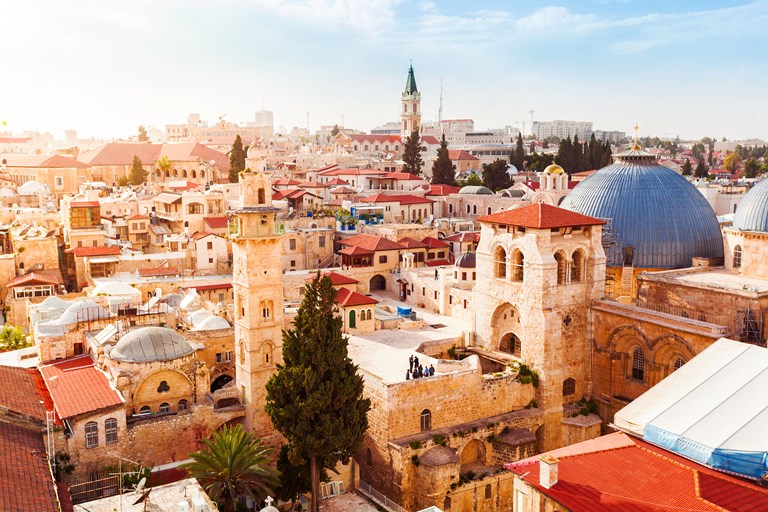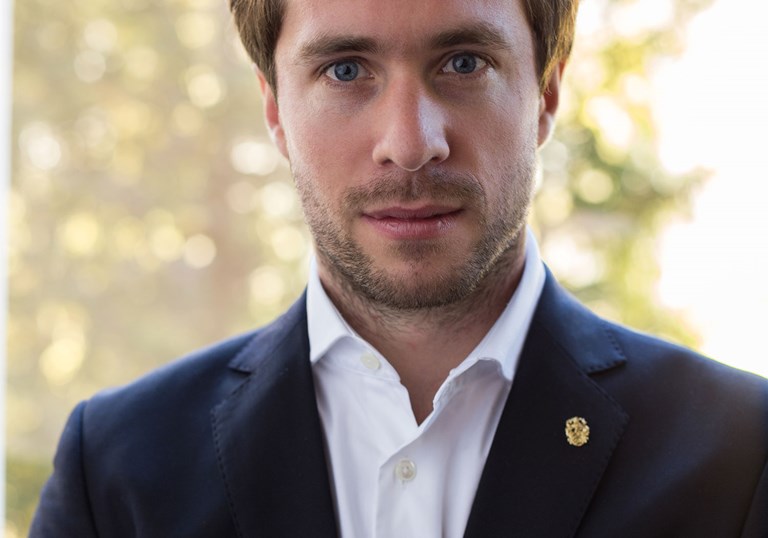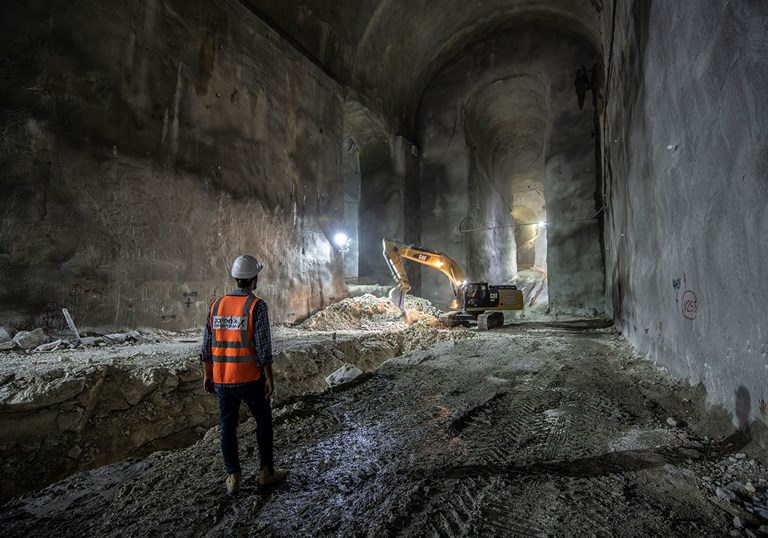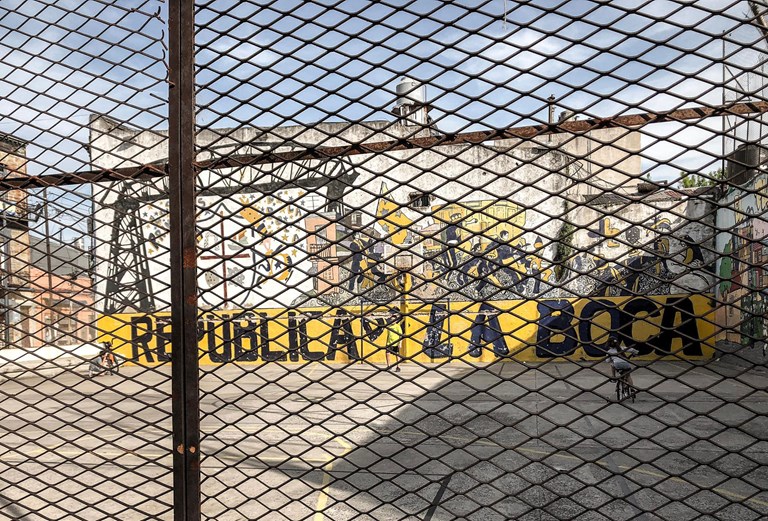
Where the patriarchs walked
The excellence and experience engineering expertise of the Pini Group are landed in the Holy Land. The doubling of the highway between Jerusalem and Bethlehem, the caves and the tunnel of the new hub of the station of Jerusalem and in the future also the Tel Aviv subway are some of their projects. In Israel, Pini has brought Swiss expertise and skills in the construction of tunnels and underground projects.
Even in a complicated land, marked by the characteristics of the territory and by political history, the “Swissness”, the ability to find efficient solutions in difficult situations, has been demonstrated once again the reliability of the Swiss companies. We have spoken with Dr. Roberto Schürch, project manager of the tunnels and responsible for the international market of Pini Swiss Engineers.
Dr. Schürch, how was the experience of the Pini group in Israel?
“It is necessary to set the premise, with the new millennium Israel found itself in, a phase of great demographic and technological development, therefore the need for infrastructure, including underground, but the local market was in short supply. Suffice it to say that the few existing tunnels were almost designed by a single engineer, Arnon Rozen. Therefore, the Israelis have decided that in order to have a contract in this sector, local companies had to have an internationally recognized partner in the field of design of underground works.”
Of course the thought must have gone to Switzerland and its tradition in digging and crossing mountains?
“Exactly. The managers of an office in Jerusalem, the Grouchko Structural Engineers, thought: where can we find an international partner with experience? Llet’s try Switzerland. So in 2016 they contacted a Swiss engineer they knew and the latter pointed them to the Zurich office of Pini Swiss Engineers.”
So Grouchko became your partner, but who was the first client?
“The Moriah Jerusalem Development Corporation. This is a company that aims to develop the infrastructure in Jerusalem and carry out public works for the local government. Their problem was doubling the capacity of Road 60, in a track from Jerusalem to Bethlehem. The intervention is very complex, perhaps unique. This is because two new tunnels have to be built alongside existing ones without interrupting the traffic on the existing track. The first is about 300 metres long, the second one is one kilometer long.
The great difficulty lies in the fact that the new tunnels must be built close a few meters away from those existing ones. After the completion of the new tunnels, the existing ones will be restored in order to guarantee a level of safety and durability in accordance with modern requirements.”
Is it a problem of conformation of the territory?
“Not only that. According to the Oslo agreements, precise corridors have been created within which Israel can build in the West Bank territories.
The first tunnel was built in the middle of the corridor, so now on the sides the space is reduced. At one point we will even have to enter inside the other tunnel so much of the available space is reduced.
Are the tunnels already under construction?
“Yes, the first tunnel is already finished and will be opened to traffic by the end of 2021.
Work is currently focused on the second one. We are using a technique that involves the construction of a tunnel, then an adjacent one.
To put it in a non-technical and easily understandable, it’s like removing one piece at a time from the the mountain, so the mountain doesn’t realize that we have pierced it and its structure adapts without trauma and above all, without causing problems to the tunnel in operation”.
Did you have to use any special safety precautions?
“A careful risk analysis has been carried out during the development of the project in order to guarantee every stage of construction and during operation to ensure maximum safety for workers and for road users. Unlike other road sections in the area, no special measures have been required to prevent risks arising from the political tensions which are unfortunately characteristic of the territory. Now the situation is more quiet than in the past. Just think that in the area there are still there are still some L-shaped walls that were realized after the stretch of road was the object of armed attacks (in the early the early 2000s there were attacks from Beit Jala, Palestinian center, towards Gilo, an Israeli settlement, ed)”.
Are you also working on other construction sites in Jerusalem?
“The appreciation for our work led Moriah to ask us at the end of 2017 for advice on a major problem they had encountered as part of the Jerusalem project Gateway. At the western entrance of the city, near the station, recently connected with high-speed trains to Tel Aviv, it is planned for the creation of a new technological centre with several skyscrapers. The project involves the creation of two “mega” caverns that will house a road tunnel to make the traffic flow under the surface in the upper part and five levels of underground parking that connect with services and buildings above and adjacent, a sort of hub obtained in two large caves thirty metres deep, twenty metres wide and 300 metres long.
They called us because the then designer argued that building access tunnels and caverns would have risked damaging the station. The project was classified as unfeasible. We set to work, we redesigned everything, found solutions, obtained the mandate and permission to finalize the project in record time.
All large-scale interventions, have you had other smaller mandates?
“Yes, for other road works, tunnels in the center of Jerusalem and we have also offered our advice in the archaeological excavations at the City of David (not far from the famous Temple Wall, ed.
of the Temple, editor’s note) as a result of problems of excessive impact of excavations on the surface structures. With our technical and politically neutral intervention, we were able to guarantee the safety of workers and archaeologists in the tunnel and that of the population on the surface”.
Is it difficult to manage these construction sites from Switzerland?
“As the mandates were growing, we chose at the end of 2019 to open a subsidiary in Israel of almost 10 people for projects and construction management. Of course, when it is necessary, for production capacity they rely on our Swiss locations. Before the coronavirus I used to fly to Israel once or twice a month to follow relationships with customers. Now we manage everything virtually.”
New mandates for the future?
“In about four to six months’ time, work should begin the work for the Green line in Tel Aviv, a new subway line for which we will work with a Chinese company. There is also a road tunnel project two kilometres long, for which we have already done the preliminary studies and which, for a year and a half, is waiting for budget approval. To weigh in on this case, rather than the pandemic however, has been the succession of different governments and repeated elections.
Playlist




